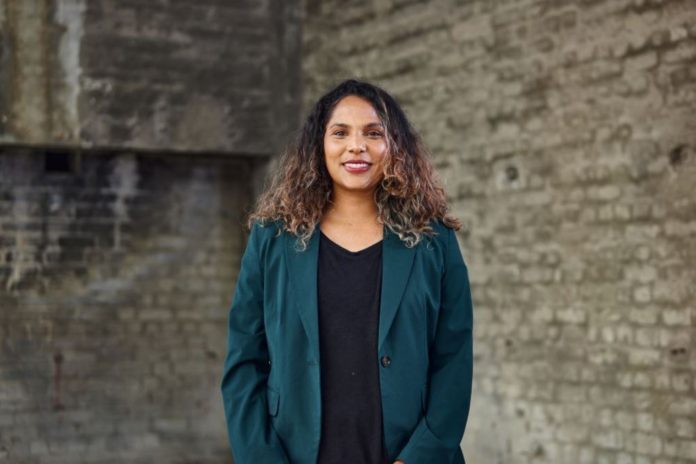On Thursday, 10 August, the South African National Taxi Council (Santaco) called off its provincial strike. The strike may be over, but across the city of Cape Town, the impact will continue to be felt for some time to come.
Five people lost their lives and a number were injured as a result of violence associated with the eight-day strike. Thousands of working-class commuters were unable to get to work and an estimated half a million learners were blocked from attending school. Buses and trucks were burnt, cars were stoned and supply chains impacted.
For the team and tenants at Philippi Village, the eight days of the taxi strike have taken an enormous emotional and mental toll.
An integrated, mixed-use development, Philippi Village is home to a diverse community of entrepreneurs and small business owners with retail, office and event space as well as sporting, educational, and cultural facilities. Since its establishment in 2016, the development has become an important connector and safe space for the local community despite being located in one of the most under-served, under-resourced communities in the country.
Philippi Village suffered frequent threats during the taxi strike as a result of criminal elements which took advantage of the chaos. The team’s approach to the threats is a testament to the power of community building as a way to keep spaces safer, demonstrating how to use moments like these to get people to unify in collective action.
The impact of the strike was keenly felt when four staff members on their way home on the first day of the strike were involved in an altercation when the vehicle they were traveling in was approached by a group of armed men and the vehicle behind them knocked into them, and forced them out of their vehicle.
Angela Teffo, Head of Programs, was in the car at the time. She explains, “It felt like we were in the middle of a war with buses and minibus taxis on fire. People, including children, were attacking cars, throwing stones and rocks at them. We saw burning vehicles, blood, injury and panic. The police were overwhelmed and unable to control the situation.”
Fortunately, the Philippi Village’s community engagement experience came to the fore, helping to defuse the tension, says Teffo. “We highlighted the human connections, calling on a community relationship we had created to help de-escalate the situation. Our team managed it calmly and when people heard that we worked at Philippi Village, there was an immediate shift which allowed us to get out safely.”
The Philippi Village team, led by CEO Bushra Razack, managed the situation as it unfolded, keeping in touch with the board, the team and the community groups on the ground in order to get real-time information, allowing them to make better decisions regarding their response, including verifying information, mapping hot spots and trying to predict the potential impact on Philippi Village.
However, it was the fifth and sixth days of the strike that really tested the mettle of the Philippi Village team. Razack was informed that in addition to targeting vehicles, buildings in the area were being targeted. In response, she summoned a tactical unit to the site to provide additional backup and support. The unit struggled to access the site and when it eventually found a gap, was attacked on its way into the area and had to leave.
The situation soon escalated with vehicles backing up against the Philippi Village gates with threats made to burn down the facility and the government library in the hub. The Philippi Village security team, led by supervisor on duty Siphosenkosi Boqwana, reminded those making the threats that Philippi Village is a community centre that exists for the benefit of the local community.
Later that evening, a bulldozer followed by a crowd of opportunists made its way through the area, destroying property while people stole what they could.
“There were more people with the bulldozer than members of our security team, so I instructed our team to step down as the risk to their lives was too great,” recalls Razack.
At the same time, Razack and her team tried to contact other businesses in the area with a tactical unit to explore the possibility of sharing the resource. She called on emergency support from team members, community contacts, businesses in the area and even amaphela drivers to try and add an additional layer of support to the security team. “These stakeholders were able to come together in different ways to respond to the situation,” Razack says, demonstrating again, the power of collective action.
Although damage occurred, it could have been so much worse. Ultimately, five containers that form part of the hub’s ‘Container Walk’ and provide offices, and storage space for micro businesses were destroyed.
Amongst the worst affected was Nomafu Mdlambuzi who, together with family members, runs a sewing business out of one of Philippi Villages containers. The business previously supported a total of 18 family members.
Security Manager Vuyokazi Tinise says that many people rely on Philippi Village for work and for a safe space and protecting it is a priority. “We weren’t thinking about ourselves but rather about protecting the hub. We were fortunate to have the support of members of the community and the Philippi Village management which meant that the damage was not worse than it was. Our team was committed, our CEO was awake all night and the community was giving us information. If other stakeholders can come together like that, our voice will be louder than those who take decisions without thinking about the impact.”
Looking back on those traumatic eight days, the violence and trauma inflicted are likely to have a long-term impact on those that witnessed it. For those responsible for mapping out the future role of Philippi Village, it begs the question of how to build a safer and more resilient community.
Philippi Village is committed to finding ways to use its space to work with the community and its partners to respond to situations like this. They have been working with partners to explore satellite spaces for learners and students for online classes and support when schools are closed in times like this. They provided trauma support to team and members during this time. They are working to provide legal support to businesses affected, and solidify partnerships with organisations like HCI Lab at UCT to investigate how to support small township enterprises to build business resilience.
“The devastation of the strikes once again highlighted the apartheid spatial reality,” says Razack. “I am grateful to our team, community and partners who responded in the way that they did – despite being the ones most affected by the strike and the ones most vulnerable. We will continue to work with the community to re-imagine solutions and to build resilience amidst the volatility.”












